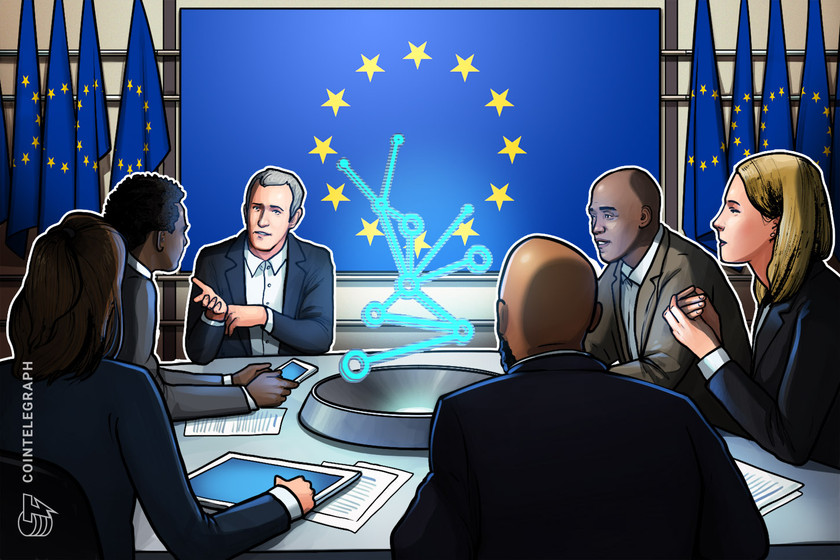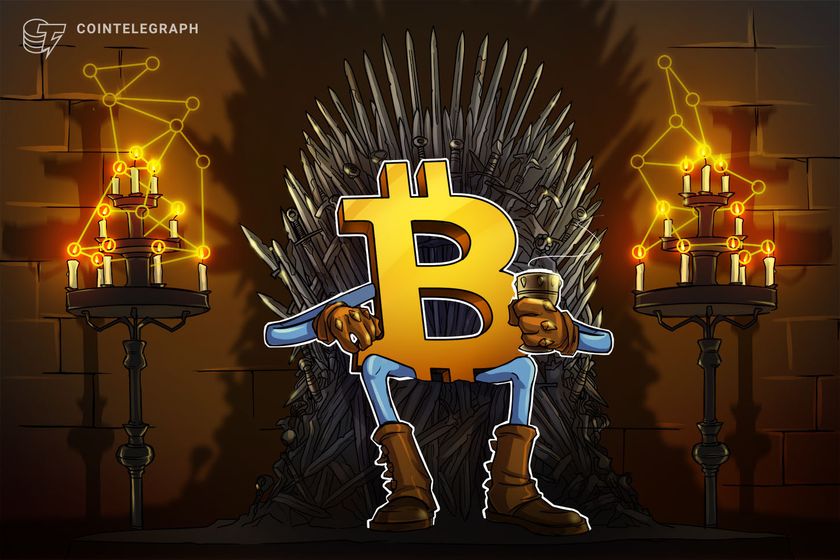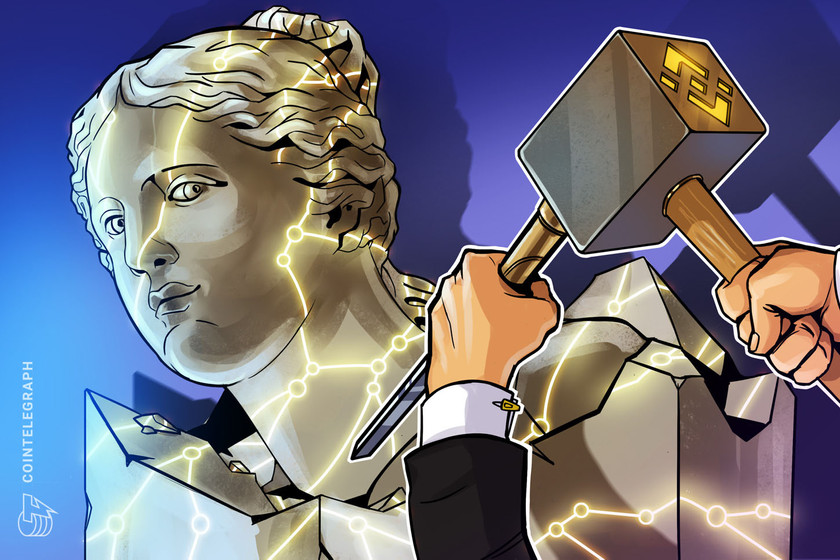As Telegram’s legal battle with the United States Securities and Exchange Commission continues to unfold, the U.S. authorities have convinced the judge to bar the company from issuing Gram tokens — at least in the near future.
On March 24, the U.S. District Court for the Southern District of New York judge said that the SEC “has shown a substantial likelihood of success” in proving that Telegram, the firm behind the eponymous open-source encrypted messenger, distributed unregistered securities.” As a result, the federal judge granted a preliminary injunction against the company, preventing it from delivering Gram tokens to investors.
Telegram has already filed a notice of appeal, meaning that the ruling will be reviewed — but experts are pessimistic about the firm’s chances. Meanwhile, the Telegram Open Network community stresses that it has all the tools to proceed with the launch, regardless of what the authorities decide.
SEC vs. Telegram — How it all started
The SEC took Telegram to court in October last year, announcing that it was suing the firm and its wholly-owned subsidiary, TON Issuer, for holding an unregistered token sale. Telegram made waves after it raised almost $1.7 billion for its blockchain platform called Telegram Open Network, or TON, in two private token sale rounds, held in February and March 2018.
Telegram’s co-founders, Russian entrepreneurial brothers Pavel and Nikolai Durov, began developing the blockchain-based platform in 2017. The project aims to facilitate payments and host decentralized applications at high scalability levels. TON is a proof-of-stake platform, meaning that it relies on validators who run nodes to authenticate new blocks and govern the network. For their services, validators are rewarded with the native currency called Gram. If released, TON will likely be integrated into the Telegram app, which boasts over 200 million users worldwide, leapfrogging the app to mass adoption.
According to reports, at this point, the product has nearly been finished for almost half a year. In early October 2019, Telegram published the entire TON source code on GitHub and announced that the launch of its blockchain project would be scheduled for the end of the month.
However, on Oct. 11, the SEC stepped in to halt the development. The agency had obtained a temporary restraining order against Telegram and TON, seeking “certain emergency relief,” as well as permanent injunctions, disgorgement with prejudgment interest and civil penalties based on the claim that around a quarter of the raised sum, $424.5 million, allegedly belonged to 31 buyers located in the U.S.
Notably, Telegram’s initial coin offering was not public. Only those investing a minimum of $1 million were allowed to partake in the TON offering, per the documents Pavel Durov filed with the SEC. By doing so, Telegram was likely looking to use a legal loophole of sorts — according to public documents from 2018, Telegram had informed the SEC that both of its twin $850 million offerings were allegedly made under Rule 506(c) and/or Regulation S under the Securities Act of 1933.
In Telegram’s view, that meant that because Gram tokens were exclusively sold to accredited investors, the offering was not required to be registered with or qualified by the SEC. Since then, the company has publically emphasized that Grams should not be associated with expectations for profits based on purchase or holding of the token, essentially implying that they do not constitute securities.
Regulators oppose this argument. In contrast, it stresses that once the Gram tokens are released, their purchasers and Telegram “will be able to sell billions of Grams into U.S. markets,” and, therefore, continue the unregistered token sale.
Despite the major legal problems Telegram is facing, TON investors have been staying calm. In October, soon after the SEC took Telegram to court, they voted against the return of their funds and agreed to a postponement of the network launch until April 30. While it is unclear who exactly participated in the TON sale, media reports suggest that Wall Street-affiliated players, such as venture capital firm Kleiner Perkins and Lightspeed Venture Partners, are among those who have invested in the project.
How objective is the 70-year old Howey Test?
The recent development shows that the court is inclined to side with the regulators and agree that Grams are securities. The main pretext for that is the 1934 Howey Test, which says that a security involves the investment of money in a common enterprise, in which the investor expects profits primarily from others’ efforts. U.S. District Judge P. Kevin Castel wrote:
“Considering the economic realities under the Howey test, the Court finds that, in the context of that scheme, the resale of Grams into the secondary public market would be an integral part of the sale of securities without a required registration statement.”
The Howey Test, which has largely been used by the SEC when dealing with ICOs, was designed long before cryptocurrencies emerged. As some industry players argue, that might undermine its relevance for the respective cases as Philippe Rodriguez, head of the TON France community, told Cointelegraph:
“This [ruling] opens an important debate on the validity of the Howey Test in the context of the creation of a crypto money and financing by a token that is intended to circulate after its purchase.”
Nevertheless, some legal experts do not believe that the Howey Test needs major alterations at this point. As Carol Goforth, a law professor at the University of Arkansas, argued in an email conversation with Cointelegraph:
“I don’t think we should significantly modify Howey. It is a long-standing precedent that works well to figure out what conventional investment contracts look like. It would be helpful for the Supreme Court to clarify what a ‘common enterprise’ entails, but that has little to do with crypto.”
Goforth then went on to explain what specific regulatory adjustments could make handling crypto-related cases more efficient: “My preference would be to take crypto out of the investment contract test by amending the securities laws to specifically designate digital assets as securities; much like stock and notes are defined as securities in the current law.” She argues that an exception could be made for this type of asset when it is sold exclusively to qualified investors who are not swayed by the desire to speculate on a future price increase, adding:
“This would have the benefit of allowing the SEC to stop wasting time and money arguing about the Howey test and when and how it applies, and would add certainty to the situation. Ideally, at the same time Congress adds these assets to the definition of security, the SEC could also be directed to provide particularized exemptions based on the need of investors for protection, and the nature of information that is relevant to crypto purchasers.”
Lilya Tessler, a partner and the head of Sidley’s fintech and blockchain group, counsel to the Chamber of Digital Commerce, a pro-adoption nonprofit that has participated in the case, explained to Cointelegraph that the Howey Test cannot be substituted since it is the existing legal standard applicable in this case. She highlighted that the judge has looked beyond Gram tokens and their digital nature when granted a preliminary injunction:
“The court took into consideration the brief I filed on behalf of the Chamber of Digital Commerce, which urged the court to ‘distinguish, and not conflate, the subject of an investment contract (the digital asset) with the securities transaction associated with it.’ The judge correctly focused on the contract, transaction, or scheme which is the securities transaction rather than the digital asset itself, which the court notes is ‘little more than alphanumeric cryptographic sequence.’”
Telegram is facing serious penalties if it doesn’t comply
While Telegram sold over $1.7 billion worth of Grams almost two years ago, the assets have yet to be distributed to their buyers because the TON network is still not online. The preliminary injunction prohibits Telegram from delivering the assets.
So, what happens to the company now that it’s been banned from releasing Grams? “Note this is a preliminary injunction, which means it only lasts until a final decision or settlement is reached,” says Goforth, noting, however, that “based on the judge’s determination that the SEC has made a showing that will probably win at trial.” That, in turn, could lead to serious consequences for the company if it chooses not to comply. Goforth called that an unlikely scenario:
“As for what would happen if Telegram just went ahead and sold in the U.S., the answer is that it would be guilty of a crime for willfully violating the securities laws and the court order. That would subject it and those in control of it, as well as those who aid and abet it, to criminal liabilities, including the risk that assets could be frozen, and bank accounts or other assets here seized.”
In any case, Telegram has already submitted a notice of appeal, meaning that the ruling will be reviewed. “Telegram’s counsel has filed a motion for an interlocutory appeal with respect to the court’s decision on the preliminary injunction,” Tessler told Cointelegraph, adding: “The Court of Appeals can rule on this motion while the trial court case is still pending.”
Although it could help the firm to buy some extra time, Telegram’s chances of winning the appeal seem slim, as Philip Moustakis, attorney at Seward & Kissel LLP and former SEC senior counsel, told Cointelegraph:
“The standard of review on appeal is abuse of discretion — it’s a high bar — meaning Telegram will have to show the district court made some clear mistake of fact or an error of law.”
Telegram’s TON is one of the several high-profile ICO cases that have been scrutinized by the SEC — but it seems that the agency could make a show trial out of this case. In September 2019, Block.one, the company behind the most successful ICO in history — which managed to raise over $4 billion during the sale of EOS tokens, more than twice as much as Telegram — reached a civil settlement with the SEC, paying a mere $24-million fine. “The facts and circumstances of each case are different,” Moustakis told Cointelegraph, elaborating:
“In the case of Block.one, in my view, the SEC may have felt that there was significant litigation risk, among other things, in the structure of the offering, which was highlighted in the order, with the ERC-20 token offered in the ICO having become fixed and non-transferrable at the close of the sale.”
According to Moustakis, however, as the Telegram case unravels, it will serve as a precedent for the litigation of other matters involving ICOs or token offerings. “But this is just one district court decision, and we still need to keep our eye on the Kik Interactive case, and others,” the attorney added.
SEC cannot stop the TON launch, says the community
The Telegram community was hit by the Tuesday ruling but remains overall optimistic. Fedor Skuratov, the founder of the TON Community Foundation, a nonprofit association of TON ecosystem participants, and former communications manager at TON Labs, told Cointelegraph that “the community was ready for this scenario,” adding:
“At TCF, we view the judgment as a certainty, which is in any case better than the frozen state of recent months.”
Indeed, TON community members have a major card up their sleeve. “TON could always be launched by anyone since all the network code is available,” Daniel Perez, head of TON Spain, told Cointelegraph. “We have several options, including the launch of TON by TCF,” Skuratov confirmed, revealing that several TON test networks have already gone online:
“No one can prevent the launch of TON by any other entity, person or a community, [be]cause TON is a decentralized open-source solution. Already, there are two different test networks, and within the community, there is at least 1 group planning to launch the third.”
In Perez’s viewpoint, the best option would be if Telegram reaches an agreement similar to the one that Block.one reached with the SEC and then returns back to the network launch. If this doesn’t happen and the community decides to take control, the TON wallet cannot be integrated into the Telegram app, which is a major milestone for the network. “But this does not prohibit the community from creating a custom Telegram client,” said Perez. Moreover, Skuratov told Cointelegraph there is a way to distribute the Gram tokens despite the recent ban:
“We are considering, among other things, the option, in which we will negotiate with TON investors on the topic of converting their rights to GRAMs in the Telegram’s originally mentioned TON into rights for other GRAMs (they may be called gums, rums, liters, doesn’t matter) in any another established TON network selected by the community.”
“No one can restrict a self-organized community from acts of goodwill,” Skuratov warned. However, Perez added that the TON community “still hope[s] that this situation will be resolved without us having to go to this extreme.”









